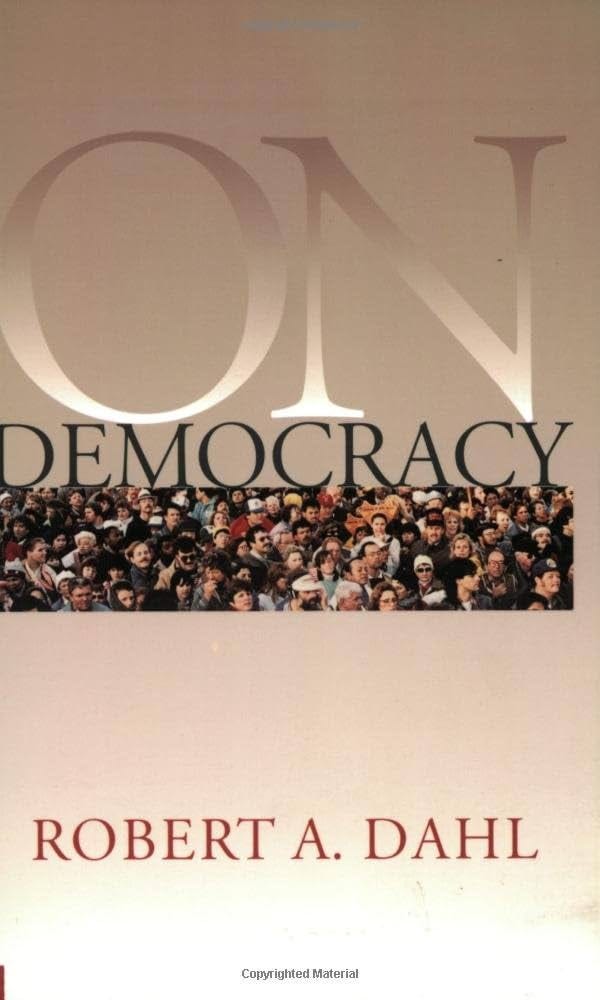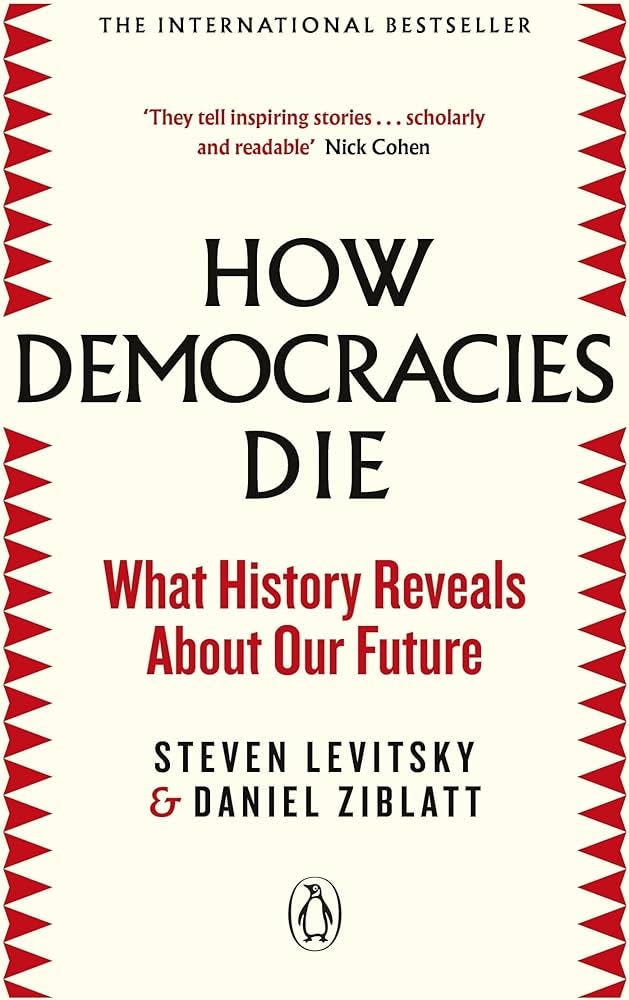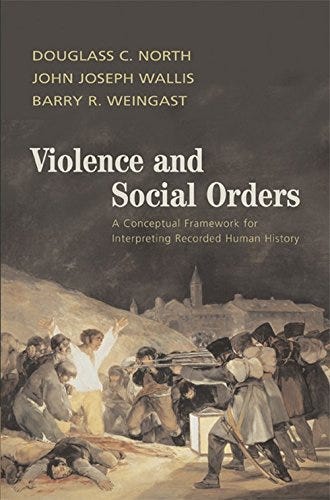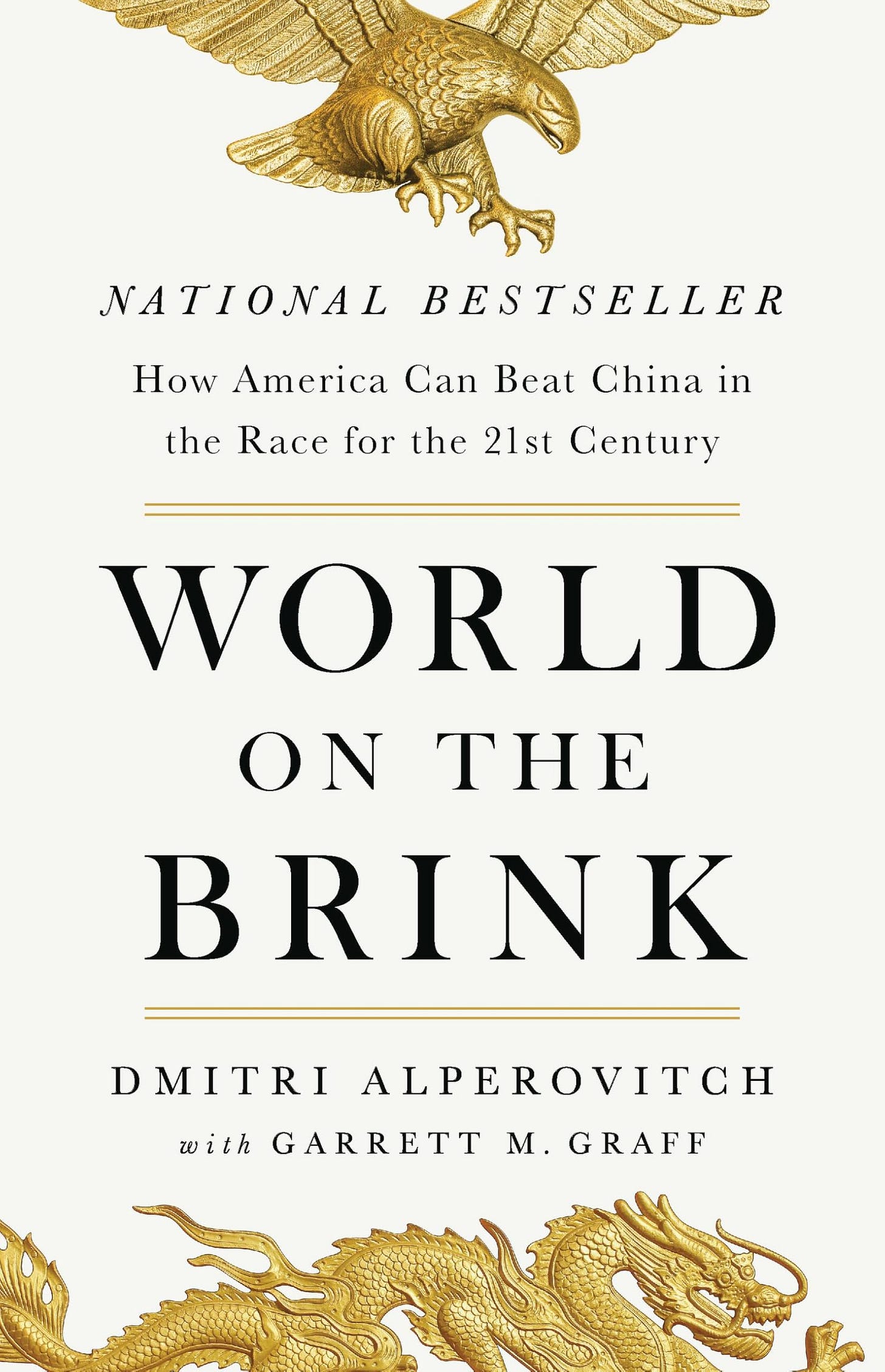The quality of US democratic institutions is at stake in the election
The protection of democratic institutions should always be a priority
This Substack is not primarily designed to venture into present-day politics. I am making an exception here as the US election is this week, with a post for paying subscribers
In a recent interview on Bill Maher’s show, the US media personality Megyn Kelly stated that she did not care about accusations that Trump is a threat to democracy. I believe Kelly’s stance is a mistake, from her own—conservative—point of view.

Bill Maher used the word “fascist” to describe the accusations Trump is facing. The use of that term may seem strong. However, seen through the prism of history, it is not entirely irrelevant. Not only has Trump repeatedly taken loud stances against the formal and informal rules of modern US society, but he also actively tried to impede the transfer of power after losing the 2020 elections. This, in itself, should disqualify him from further consideration as a presidential candidate.
The primary question of politics should not be “who should rule?”
Elections can give the impression that the most important question of politics is selecting the right leader. This perspective is misguided. As the Second World War came to a close, the philosopher Karl Popper wrote in his famous opus on political liberalism,1 The Open Society and its Enemies, that the real question of politics should not be “Who should rule?” but instead, “How can we so organize political institutions that bad or incompetent rulers can be prevented from doing too much damage?”
Thinking that “who should rule” is the right question, leads us to think that it should be the “right” people, those on “our” side who will protect our own and defeat our enemies. The problem with that view is that without the bulwark of democratic institutions protecting the population, the representatives of “our people” tend to end up representing themselves. Communist leaders purporting to defend the working class end up living in datchas while common workers toil in farms and factories. Nationalist leaders purporting to champion the defence of the nation end up sending their compatriots to mass death in unnecessary wars, without any compunction.
George Orwell famously captured this dynamic in Animal Farm. Oppressed by a mean farmer, the animals revolt and expel him. They then hail the pigs as their representative to organise the farm. Unrestrained by democratic rules, the pigs end up as oppressive as the farmer, to the point where they seem to adopt human traits. The fact that Orwell was primarily criticising communist regimes should not mask the most important point: selecting “the right people” and entrusting them with power without considering first the institutional set-up as the key question to resolve is a recipe for disaster.

This insight should lead to a very minimal principle when choosing a political candidate in a democracy: be wary of candidates who say that they will free themselves from the constraints of existing rules. Be even more wary of candidates who actively engage in subverting the institutional order so as to increase his or her ability to rule unfettered by institutional constraints.
Existing institutions are valuable
Saying this does not mean that one must adhere to the view that existing institutions are perfectly adequate and well-functioning. Indeed, as discussed by Fukuyama in Political Order and Political Decay, there are many aspects of US formal and informal institutions that are problematic such as the influence of interest groups and the relative weakness of the state apparatus compared to other democratic countries.
However, those who may be tempted by a vote for Trump might want to consider a key insight from a conservative approach to political institutions: there is a hidden wisdom in present institutions. They are the result of historical selection and if they exist as they are it is typically because, to some extent, they work.
This view, put forward by Hayek in Law, Legislation and Liberty, has one important implication: one should be wary of those who simply dismiss existing institutions and argue that they can easily be replaced or even just done away with. Burke famously criticised the French Revolution with its murderous excesses2 for having been based on the idea that institutions could simply be broken and rebuilt at a stroke.
The importance of democratic institutions is too easily overlooked
Democratic institutions are a particular set of institutions that work. They make it possible to manage societal compromises peacefully, offering a structured way for diverse interests to coexist and resolve conflicts without resorting to force. They establish a framework where power is dispersed and regulated. They allow for the representation of a wide range of views, ensuring that decisions are made through negotiation rather than violence. As political scientist Robert Dahl argues in his book On Democracy, such institutions are essential in guaranteeing political equality, individual autonomy, and accountable governance.
It is easy for those who benefit from such institutions to overlook the fact that they are far from universal. A large proportion of the world population lives under non-democratic regimes where such protections do not exist, and where safety and freedom are uncertain or constantly under threat. The stability and freedoms provided by democratic institutions are privileges that should not be taken for granted.
These considerations should, I believe, trump any other (no pun intended) in an election. A candidate who clearly attempted to subvert the democratic process should be disqualified on that ground, whatever his or her policy positions.
Not only this candidate’s election might cause a threat to the functioning of democratic institutions, but also a well-functioning democracy needs to set a precedent that the disrespect of democratic norms is not a winning strategy. Future politicians should be disincentivised from considering the same path as a way to power.
People supporting Trump may say that he would not turn into a dictator. That might well be true, but it underappreciates the range of negative consequences that could ensue from his election.
In their book, How Democracy Die, Steven Levitsky and Daniel Ziblatt discuss how democratic institutions can decay and collapse, using examples from around the world. The erosion of democracy often occurs not through outright coups but rather through gradual changes in political norms and institutions. They present cases from 20th-century Europe and Latin America. While some democracies fell due to military force, others fell from the actions of elected leaders who dismantled democratic structures from within.
There are several warning signs that politicians might undermine democracy. These include the rejection of democratic norms, the portrayal of political opponents as existential threats, a tacit acceptance of political violence, and systematic efforts to curtail civil liberties. Authoritarian leaders often operate within the letter of the law while violating its spirit, using legitimate democratic processes to gradually hollow out democratic institutions.
Democratic institutions as equilibria and what it means
A well-functioning democracy is based on a set of formal and informal institutions that are commonly accepted. These institutions form an equilibrium of the political game. One aspect of social equilibria is that it is easy to be oblivious to their existence. Everything seems so natural when they are working that we can take them for granted. Social equilibria generate a common knowledge of expectations. When common expectations are aligned, everything can work smoothly without having much to think about. You know what to expect from your neighbours (including the fact that they won’t try to kill you) and they know what to expect from you.
Something we learn from history is that you break a political equilibrium at your own peril. When equilibria break down, things can deteriorate in many unforeseen ways. Common expectations can crumble, suspicion can grow, trust can plummet, and things can go awry very quickly.3 Douglass North, John Wallis and Barry Weingast developed that perspective in Violence and Social Order and discussed many historical examples where situations of political disruption led to a spiral of social chaos.
If you think that a country like the United States would be immune to such risks, you might reconsider. The US public debate has reached strikingly high levels of animosity. Accusations of large-scale wrongdoing abound, such as claims of electoral fraud or allegations of intentional plans to allow illegal immigrants to change US demographics. Four years ago, the most significant political riot in recent memory took place in Washington, DC, encouraged by Donald Trump. US institutions are strong and hopefully unlikely to crumble in the case of a Trump victory. However, they were tested in 2020, and their stability appeared shakier than most observers would have expected beforehand. Four more years of a Trump presidency would be like Russian roulette: the risk of something terrible happening may be small, but the worst possible outcome could be severe.
Not a time for internal strife
The US is also facing external threats. In a recent post, Noah Smith argued that the US is now facing a very challenging political landscape with a systemic opponent China all the more capable than the USSR was during the Cold War. I agree with his take. In fact, it is hard not to see the US internal political strife as fostered by a false sense of security in a world that is becoming more dangerous.
In a well-documented book published this year, security analyst Dmitri Alperovitch suggests that 2027 could be a credible date for a Chinese invasion of Taiwan. In such an eventuality, the world would be on the brink of a new global conflict. From this perspective, the US will need to maintain strong alliances with other democracies, particularly in Europe and Asia. Here again, Trump seems the wrong person to navigate these uncertain times.
Turning the page
Those voting for Trump seem to think he is the best to fight against the leftwing policies they oppose. In fact, it is much more likely to be the contrary. The evidence points to the fact that other possible Republican candidates would have been more likely to beat Biden or Harris (see evidence for DeSantis and for Haley).
Levitsky and Ziblatt discuss in their book the concept of “gatekeeping”. They argue that political parties have a responsibility to prevent authoritarian leaders from gaining power. The Republican party failed to do so on its own this time. Many Republicans reluctantly joined the bandwagon to avoid losing Trump's support and their seats. Perhaps Republicans should hope for the democratic system to work and help them turn the page of Trumpism. Indeed, many may be secretly wishing this is what will happen on Tuesday.
References
Alperovitch, D. and Graff, G.M., 2024. World on the Brink: How America Can Beat China in the Race for the Twenty-First Century. New York: PublicAffairs.
Burke, E., 1790. Reflections on the Revolution in France. London: J. Dodsley.
Dahl, R.A., 1998. On Democracy. New Haven: Yale University Press.
Levitsky, S. & Ziblatt, D. (2018). How Democracies Die. New York: Crown Publishing.
Fukuyama, F., 2014. Political Order and Political Decay: From the Industrial Revolution to the Globalization of Democracy. New York: Farrar, Straus and Giroux.
Hayek, F.A., 1973-1979. Law, Legislation and Liberty. London: Routledge & Kegan Paul.
North, D.C., Wallis, J.J. and Weingast, B.R., 2009. Violence and social orders: A conceptual framework for interpreting recorded human history. Cambridge University Press.
Orwell, G., 1945. Animal Farm: A Fairy Story. London: Secker and Warburg.
Popper, K.R., 1945. The Open Society and Its Enemies. London: Routledge.
The term “liberal” does not refer here to its meaning in the US political landscape. Instead, it refers to its use in political philosophy as reflecting an attachment to freedom and democracy.
The gap between the French Revolution’s lofty initial ideals and the violence it unleashed on all levels of French society is often underappreciated. It is estimated to have killed between 300,000 and 400,000 people between 1792 and 1799, prior to the Napoleonic wars. A large part of the fatalities (170,000 to 200,000) came from mass killings of the population living in the region of the Vendee, who supported the Monarchy and the Church. It also unleashed mass violence against the political elite and, to a large extent, “ate its own children,” an expression attributed to the famous revolutionary Georges Danton to describe the mass executions of many early proponents of the Revolution.
As an illustration, consider that the start of the coronavirus epidemic in the US, and the potential social disruption it announced, triggered a massive purchase of… guns. Buyers likely anticipated that social order could break down, with possible riots and threats to property as potential consequences of the epidemic.











Thanks for reminding people of Popper’s work on democracy and the application of falsification to politics.
“Do not destroy the institutions that enable the means for error correction” - has to be one of the foundational concepts of any political or epistemological system.